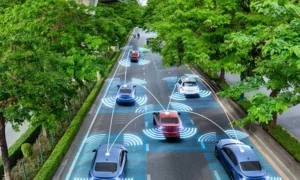Local authorities need to take an active role in the deployment of e-scooters
in their regions, setting out regulations for operators in order to ensure that
e-scooters meet their needs and ambitions, according to a new report by Cenex-the centre of excellence for low carbon and fuel-cell technologies.
Its report, Maximising the benefits of e-scooter development in cities, said the staring point for this development should be to facilitate dialogue between cities and operators to understand each other’s requirements and aspirations. “Through this, appropriate frameworks can be created that cover public space allocation, infrastructure, and location of deployment to enable modal shift.”
It said that although operators are already taking action to reduce their carbon footprints, pressure should be exerted by cities and local authorities to improve sustainability. “This could be achieved through a tender process that places a high weighting on environmental sustainability, or using data analysis to ensure e-scooters are most likely to replace car journeys and avoid replacing active travel,” it said.
Through careful planning and working cooperatively, e-scooters can benefit
a high proportion of citizens within a city, allowing cheap and accessible
transport that can provide first and last mile services for many journeys, said the report.
“Overall, Cenex’s view is that the potential benefits of e-scooters far outweigh the few negatives, and when managed appropriately these negative aspects can be fully mitigated. Through openness, planning and regulation, e-scooters represent a large piece of the puzzle in decarbonising urban transport, and the lessons learnt from e-scooter deployment can help prepare cities for future transport innovations,” it said.
Research shows that 58% of UK car journeys are less than five miles, and in urban environments 69% of car journeys are less than three miles. According to the report, congestion causes an average of 178 lost hours per year with an associated cost of £8 billion. An opportunity for e-Scooters to replace car journeys is highlighted through Cenex’s data as it states e-Scooter journeys can reduce CO2 emissions by between 66-90% when they replace car travel in cities.
“Local authorities need to take an active role in the deployment of e-Scooters in their regions, setting out regulations for operators in order to ensure that e-scooters meet both their ambitions and their citizens’ needs.”, said David Philipson, Transport Technical Specialist at Cenex. “It is evident that e-Scooters are here to stay, with operators committed to continual improvements for the benefit of both the environment and society. Though still in its infancy as an industry, e-scooters are already providing a genuine, affordable, green solution to private car use in city centres which will only improve over time.”
The fill report can be read here: https://www.cenex.co.uk/app/uploads/2020/08/Maximising-the-benefits-of-e-scooter-deployment-in-cities.pdf





















